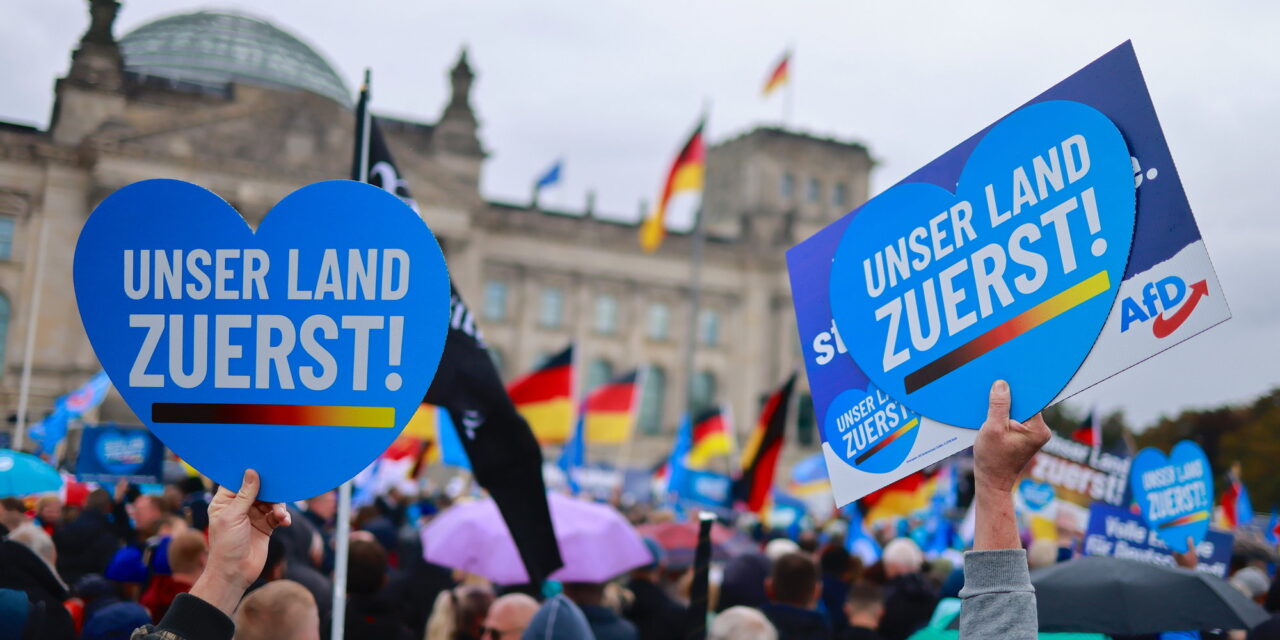The Saxony organization of the radical right-wing party AfD has been classified as a threat to German democracy. In the city of Pirna in the federal state of Sachsen (Saxony), the candidate they supported won 38.5 percent of the valid votes in the second round of elections on December 17 (with a turnout of 53.8 percent), which proved to be enough to win the office as a relative majority. Tim Lochner, 53, is a member of the AfD faction in the city council, but is not a party member himself. The secret of the Pirna politician's success may be what he stated earlier: "If the proportion of foreigners in kindergartens and schools in a district is 38 percent, for me, that is the replacement of the native population." As city manager, Lochner promised the residents of Pirna a transparent, open, clear and result-oriented leadership.
The Greens, who otherwise have lower support in the city, voiced their concern: "We are shocked that the mayor of a party was elected, which the Office for the Protection of the Constitution classified as right-wing extremist last week," wrote the Saxon provincial federation of the Greens on X. At the beginning of December, the Office for the Protection of the Constitution of Saxony classified the AfD as a verified right-wing extremist party, thus (after similar official actions in Thuringia and Saxony-Anhalt) the AfD in Saxony received the third such "classification" at the state level. Lochner is a politician who won the third election and is supported by the AfD: so far this year, they have managed to win a provincial council position in Thuringia, also in East Germany, as well as the title of mayor of a village in Saxony-Anhalt.
In Pirna, the vote distribution (in the second round) was as follows: Tim Lochner (38.5%), Kathrin Dollinger-Knuth (CDU) 31.4%, Ralf Thiele (Freie Wähler) 30%. Lochner already ran in first place in the first round on November 26, but did not reach the 50 percent required to obtain the position. It should be noted that between 2001 and 2009 Markus Ulbig (CDU) and from 2010 Klaus-Peter Hanke (Freie Wähler) are the mayors of Pirna. In the district seats and in Saxony's three cities with district rights, the mayors bear the title of mayor. Lochner has now ordered the candidates of the two parties behind him, which have been mayors in the city for the past decades.
In Pirna's 26-member city council (following the 2019 municipal elections), the AfD has a total of five seats, just as the CDU and Freie Wähler have five seats each, while the Greens, for example, have only two seats. The members of the city council are elected for five years, unlike the 7-year term of office of the mayor. The mayor can be "voted out" of office by the citizens of the municipality; in a settlement with less than 100,000 inhabitants, a citizen's petition is required to initiate the recall procedure, which must be signed by at least one-third of the municipality's citizens (over 100,000 inhabitants, a smaller proportion may be sufficient).
The German mainstream press also mentions in connection with the possible ban that until now "marginal neo-Nazi parties and associations that had no chance of coming to power" were in the crosshairs.
One of the constitutional grounds for the move may be that in Germany, the constitutional court procedure according to Article 21 (2) of the Basic Law (Grundgesetz, GG) serves the preventive protection of one of the main pillars of the state, the free, democratic basic order. Due to the intensity of the intervention related to party bans and in order to prevent (political) abuses, in Germany only the Federal Constitutional Court is entitled to decide on the interpretation of Article 21 (2) of the Basic Law - § 13, point 2 of the Federal Constitutional Court Act (Bundesverfassungsgerichtsgesetz, BVerfGG) and on the basis of § 43 - on establishing the unconstitutionality of a party and banning this party organization.
According to Section 43 (1) of the BVerfGG, only the following constitutional bodies are entitled to initiate the procedure:
- the Bundestag (represents the German people as a whole in the legislature);
- the Federal Council (represents the 16 provinces in the legislature);
- the federal government;
- if the organization of a party is limited to one federal state, the government of this federal state may also submit the application based on Section 43 (2).
It is known that in Turkey, in 1998, the Turkish Constitutional Court banned the Turkish Welfare Party, and the European Court of Human Rights accepted this ban, in March 2003, a court in Spain banned the Basque Batasuna party, which was considered a political branch of ETA; this ban was based on a law passed on June 27, 2002. And the list from the history of Germany is long:
- in the German Empire, based on a law in force from 1878 to 1890, all socialist and social democratic organizations were banned, and their activities were classified as illegal;
- in the Weimar Republic, the NSDAP was banned (following Hitler's Munich Beer Putsch) from 23 November 1923 until its re-establishment on 27 February 1925; the ban, which also affected the German People's Freedom Party, was quickly lifted at the end of February 1924;
- the German Communist Party was banned in the spring of 1919, then on November 23, 1923 (until February 28, 1924);
- after the National Socialists came to power, the left-wing SPD was declared an "organisation against the people and the state" on 22 June 1933 and thus banned, and from 16 July 1933 all parties other than the NSDAP were also banned by the new parties law prohibiting its establishment;
- the II. In post-World War II Germany, on October 10, 1945, the NSDAP was banned along with all its branches and affiliates;
- the procedure to ban the German National Democratic Party (NPD) was initiated jointly by the Bundestag, the Bundesrat and the federal government (Schröder's first government) in 2001, but it was terminated by the Federal Constitutional Court on March 18, 2003 for procedural reasons;
- In December 2013, the Bundesrat again appealed to the Federal Constitutional Court to ban the NPD, but this time the federal government (the second Merkel cabinet) and the Bundestag did not participate. In March 2016, the Federal Constitutional Court discussed the question of the NPD's unconstitutionality, and based on the judgment of January 17, 2017, the robed body found no "signs" of the party's "successful implementation of its unconstitutional goals" (thus it was not banned).
Analysts mention as a legal concern related to the temporary party ban that the act can easily become a political witch-hunt tool, if, for example, the left-wing elite in power in Germany decides to use this constitutional guarantee in the service of its own political interests, and - as Brussels did on 7- applies the procedure according to Article es against conservative, national governments - it turns a constitutional (legal) guarantee into a political tool. There is a narrow gap between the social interest linked to the banning of parties and the freedom of association – also established at the constitutional level and recognized throughout Europe [GG Article 9 (1)].
As for the popularity of the AfD, according to the latest popularity measurements, the support of the party is generally around 16 percent in the West German states, while in East Germany it is around 29 percent (which, when broken down into several former GDR states, already represents a third of the electorate). . For the country as a whole, this represents a stable support of over 20 percent.
The German mainstream sees a serious political risk in the AfD, as the number of people rejecting migration is also increasing in German society, so the left is increasingly desperately looking for a solution, how to keep its own power and suppress the growing AfD.
Being classified as a threat to democracy can be the first step on the road to a ban.
Source: alaptorvenyblog.hu
Front page image: At the call of the German opposition party Alternative for Germany (AfD), they demonstrate for energy security and against inflation in front of the Berlin parliament building, the Reichstag, on October 8, 2022.
The inscriptions mean: our country is the first. MTI/EPA/Hannibal Hanschke












